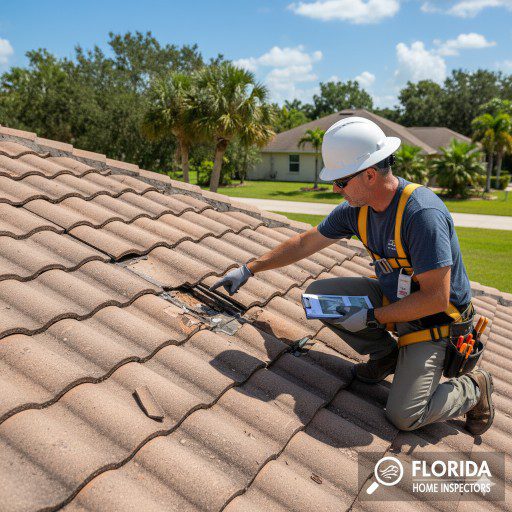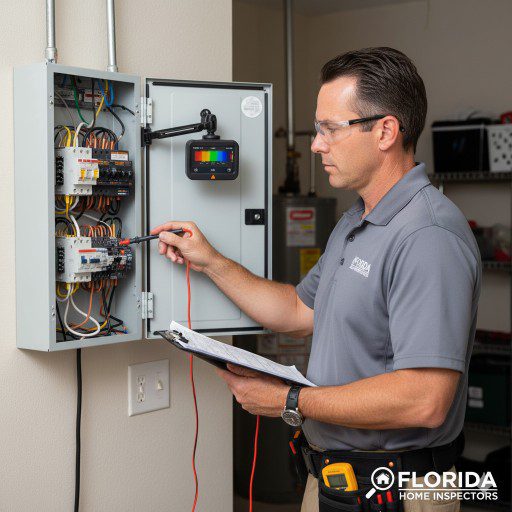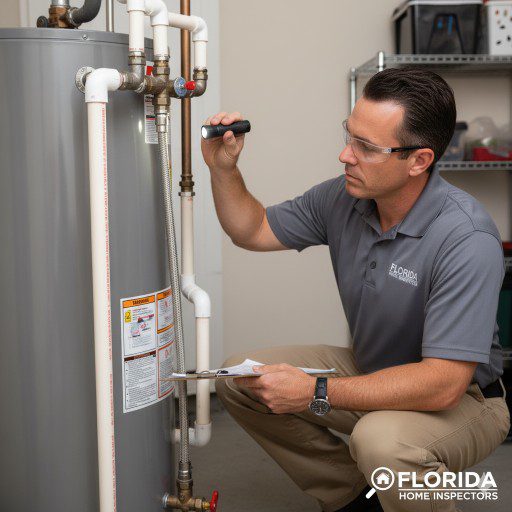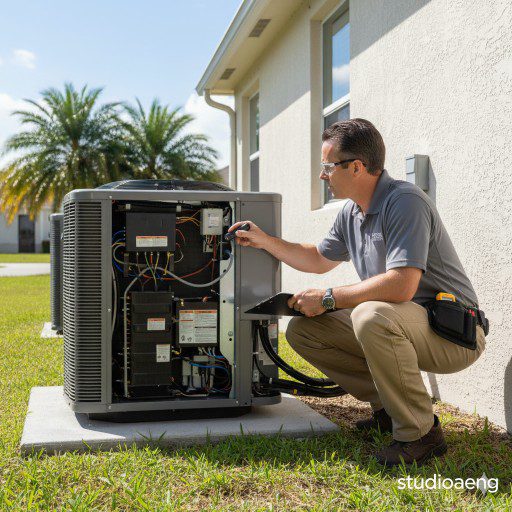What is a 4 Point Inspection in Florida? (And Why You Need One)
If you own or are buying an older home in Florida, your insurance company has likely asked you to get a 4 point inspection florida. This request can be confusing, but it’s a standard and crucial part of securing homeowners insurance in the state. This inspection is not a comprehensive home review; instead, it’s a focused assessment of the four most critical systems in your home, which are the most common sources of insurance claims.
This guide will clearly explain what a 4 point inspection florida covers, why it’s required, and share some expert secrets to ensuring your report is successful.
The Four Points: A Detailed Breakdown
A 4 point inspection florida provides an insurance company with a clear snapshot of the age and condition of the four systems most likely to cause problems in an older home.
1. The Roof
The inspector will assess the type of roof covering (shingles, tile, metal), its age, and its overall condition. They will look for any visible signs of damage, deterioration, or leaks. An older roof nearing the end of its lifespan is a major red flag for insurance carriers.


2. The Electrical System
This involves checking the main electrical panel, the wiring, and the outlets. The inspector will identify the type of wiring (e.g., copper, aluminum), the brand of the panel (certain brands are known to be problematic), and look for any obvious hazards like frayed wires or improper connections.

3. The Plumbing System
The plumbing inspection focuses on the type of pipes (e.g., copper, PVC, polybutylene) and the condition of the water heater. The inspector will check for any visible leaks, signs of water damage, or outdated materials that are prone to failure.

4. The HVAC System (Heating, Ventilation & Air Conditioning)
The inspector will determine the age, type, and general condition of your HVAC system. They will check for any signs of leaks, damage, or lack of maintenance to ensure the system is functioning safely and properly.
4 Secrets to a Successful 4 Point Inspection Report
1. Don’t Hide Obvious Issues
An experienced inspector will find obvious problems. If you have a known, minor leak under a sink, it’s better to have it repaired before the inspection. Presenting a well-maintained home shows the insurance company that you are a responsible homeowner, which can work in your favor.
2. Provide Documentation
If you’ve had a new roof or a new electrical panel installed recently, provide the permits or receipts to the inspector. This documentation proves the age and compliance of the upgrade and can be the deciding factor in getting your home insured.
3. Understand It’s Not a Pass/Fail Test
The goal of a 4 point inspection florida is not to “pass” or “fail” but to accurately document the condition of the systems. If an issue is found, it doesn’t automatically mean you won’t get insurance. It often means the insurance company will require you to fix that specific issue before they will issue the policy.
4. Choose a Qualified Engineer, Not Just an Inspector
While many home inspectors are qualified, having a Licensed Professional Engineer perform your inspection provides an unparalleled level of authority. An engineer can not only identify a problem but also understand the underlying structural or systemic cause. This expertise is crucial if any issues are found that require a professional opinion. This is a core part of our real estate inspection services. For more on state regulations, you can visit the Florida Office of Insurance Regulation.
Schedule Your Inspection with Confidence
A 4 point inspection florida is a necessary step for many homeowners. By understanding the process and preparing your home, you can ensure a smooth and successful outcome.
Contact us today to schedule your inspection with a licensed professional engineer and get the certified report you need.
